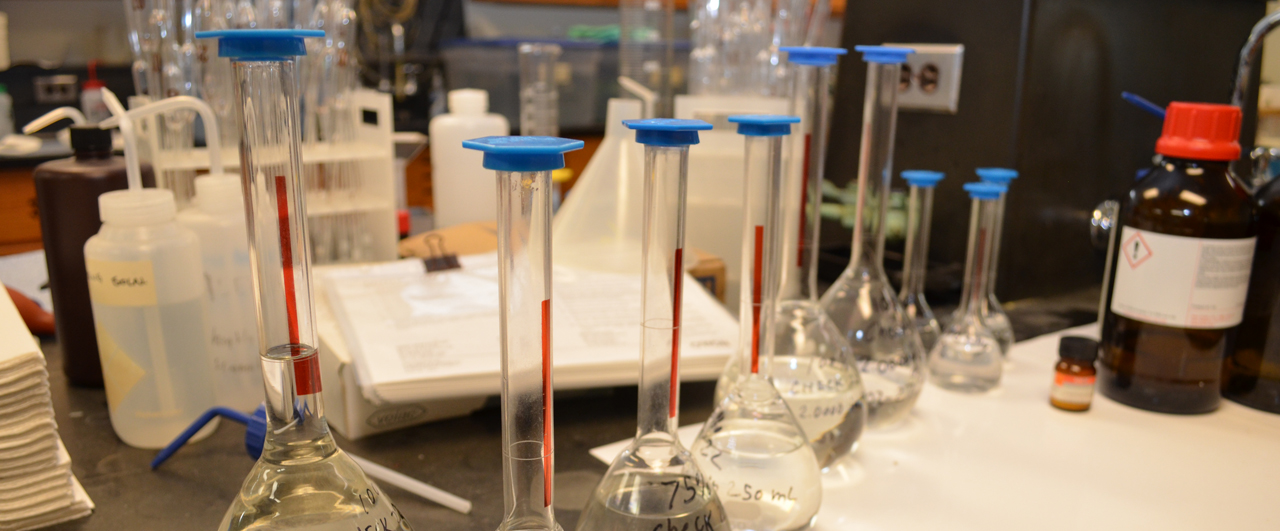The Florida Industrial and Phosphate Research Institute has knowledgeable staff and in-house facilities and equipment to provide expert laboratory and consulting services for a wide range of phosphate, associated minerals and other applied industrial purposes.
Sensitive or private efforts can be easily accommodated by means of established confidentiality processes.
Laboratory facilities of the FIPR Institute include an analytical chemistry lab (with a wet bench chemistry room and a separate analytical instrument room), a metallurgical lab (with an adjacent secure outdoor compound) and a biological laboratory (and associated greenhouse area).
A partial list of analytical capabilities includes:
- Sample preparation: homogenization, cone and quartering, Bico rock crusher (jaw crusher), grinding (Bico-Braun ball or rod mill and Bico-Braun pulverizer/grinder), Blue-M drying ovens, Tyler Ro-Tap, sieve screening (wet & dry), riffle sample splitter
- IEC centrifuge
- pH/ISE meter
- X-ray diffraction
- P2O5 and CaO analysis (Lachat QuickChem 8500 Series 2 flow injection analyzer)
- Inductively Coupled Argon Plasma (ICP-OES) analyses (Perkin Elmer Optima 8300 Spectrometer)
- Inductively Coupled Argon Plasma (ICP-MS) analyses (Perkin Elmer NexION 350 Spectrometer)
Special sample preparation and/or procedure methods include:
- Heavy minerals separation
- Magnetic separation
- Electrostatic separation
- Sonic sieving
- Cyclosizing
- Insol determinations
- ICP select elements (including uranium and rare earth elements)
Chemical analyses are performed with the most recent methods described in the Association
of Fertilizer and Phosphate Chemists (AFPC) manual. Only minor modifications are made
to accommodate instrumentation available at the FIPR Institute, but quality assurance
is verified using controls and standards. Reagents are ACS reagent grade and volumetric
glassware is class A, as required. Analytical results of phosphate rock samples are
monitored by analyzing AFPC-certified Check 22 standards along with the project samples.
Spikes are incorporated to monitor recovery of cations by the ICP.
The biological laboratory and greenhouse are mainly utilized for herbicide susceptibility testing of native and exotic plant species.
Laboratory services can be provided by the FIPR Institute on a contractual basis.
